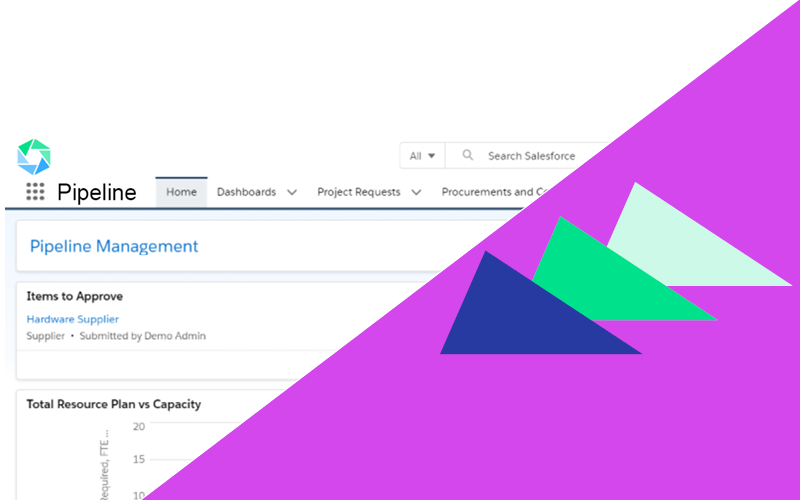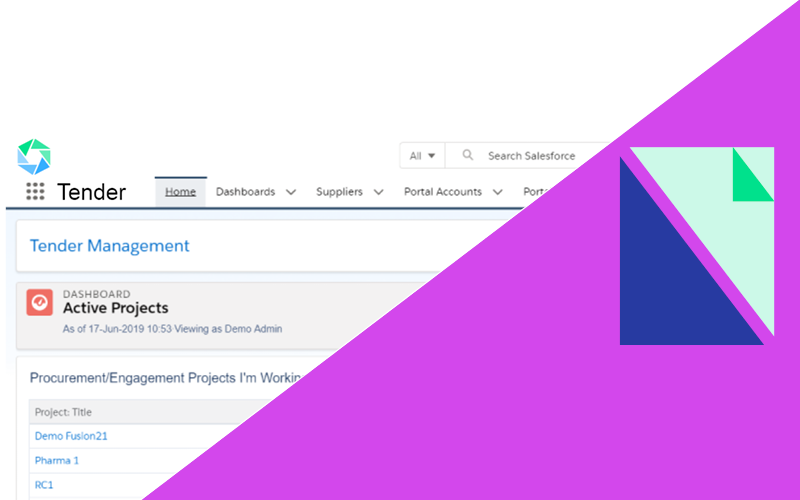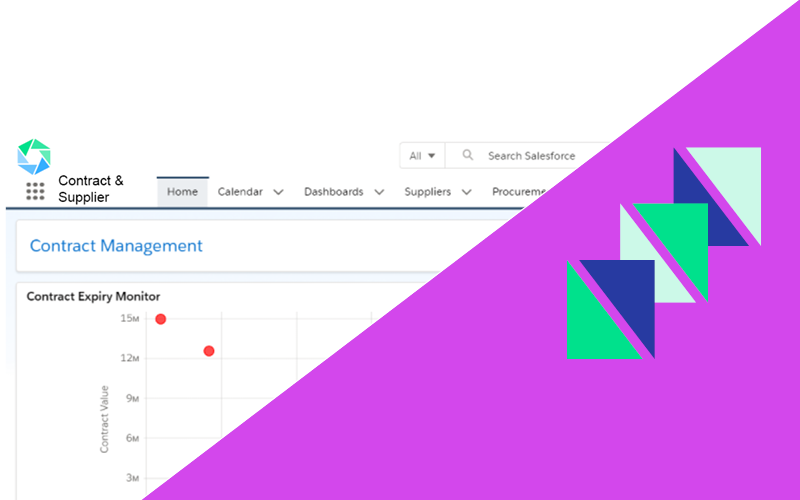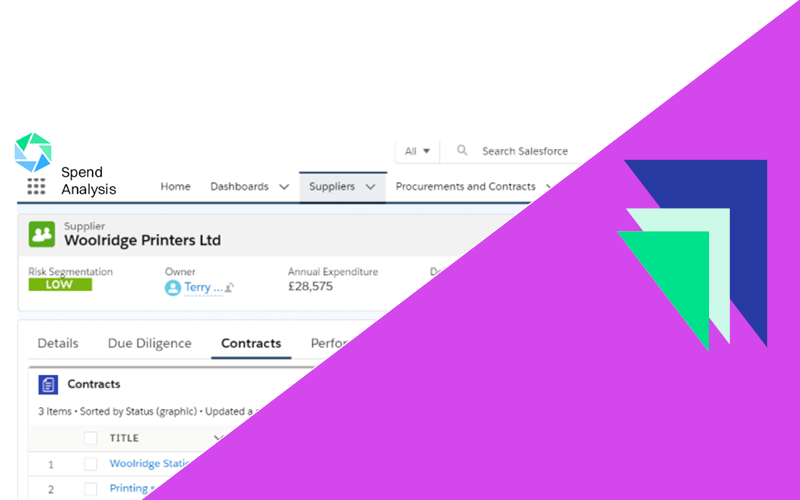As public procurement undergoes transformation in the UK, procurement teams in public and regulated sectors approach a pivotal moment.
The Procurement Act 2023, effective from the end of February 2025, introduces transformational changes aimed at streamlining procurement processes, enhancing transparency and driving better outcomes.
Against this backdrop, the procurement function must move beyond compliance and cost-saving to become a strategic driver of innovation. Procurement will need to foster innovation to meet evolving organisational goals, ensure value for money and tackle broader objectives like sustainability and community development.
Here’s a snippet from Lisa Stubbs, Head of Open and Transparent Contracting at Cabinet Office’s episode of the Powering Procurement Podcast with her take on why innovation should be top of the aspiration list when it comes to TPP.
By embedding innovation at every stage of the procurement process, teams can seize new opportunities.
In this article, we explore five key ways procurement software providers can help public sector and regulated procurement teams navigate the changes introduced by the Procurement Act 2023 and drive innovation in procurement.
1. Flexible Procedures for Enhanced Innovation
One of the standout features of the Procurement Act 2023 is the introduction of the Competitive Flexible Procedure. This mechanism allows contracting authorities to tailor procurement processes to fit unique challenges.
By moving away from rigid, one-size-fits-all frameworks, teams can adopt more dynamic methods, such as phased tenders and prototype development stages by adopting e-procurement solutions through procurement software providers.
This flexibility enables procurement professionals to collaborate more effectively with suppliers, refine specifications and foster innovation. For instance, public authorities can now incorporate early research and development phases to test innovative solutions before full-scale implementation.
2. Preliminary Market Engagement
The new legislation strongly encourages early engagement with suppliers. This pre-tender interaction helps procurement teams understand market capabilities, identify innovative suppliers and shape tenders that reflect emerging solutions. By focusing on market intelligence and relationship building, teams can co-develop solutions that meet both organisational and societal needs.
For procurement professionals, advanced procurement tools are a game-changer. This allows them to source cutting-edge technologies or sustainable alternatives that were previously overlooked.
3. Simplified Access for SMEs and Startups
When the Procurement Act 2023 goes live, contracting authorities must consider barriers faced by small and medium-sized enterprises (SMEs). Measures such as breaking down large contracts into smaller lots and publishing procurement pipelines make public contracts more accessible. This not only diversifies the supplier base but also introduces innovative solutions from new entrants and niche providers.
For example, SMEs are often at the forefront of technological advancements, offering agile and creative approaches that larger corporations may lack so making the tender process as accessible as possible can only be a good thing for public procurement teams.
4. Clearer Rules and Transparency for Better Outcomes
The Procurement Act 2023 simplifies and clarifies procurement rules, making processes more accessible to both buyers and suppliers. Enhanced data transparency and the requirement to publish procurement information in a standardised format enable teams to identify trends, anticipate supplier innovations and align strategies with broader objectives like environmental sustainability and social value creation.
This data-driven approach supports smarter decision-making and aligns procurement goals with innovation and performance metrics. Data is the most powerful tool a procurement team has and structuring that key data is fundamental to driving strategic decisions that align with business objectives.
5. Embedding Strategic Priorities in Procurement
The Act mandates consideration of national strategic priorities, such as sustainability, social value and innovation. Procurement teams must now evaluate these factors when awarding contracts, shifting focus from Most Economically Advantageous Tender (MEAT) to Most Advantageous Tender (MAT) approaches. This holistic evaluation fosters innovation by prioritising suppliers that deliver broader value.
By aligning procurement activities with strategic objectives, teams can address societal challenges, from reducing carbon footprints to fostering local economic growth, while achieving organisational goals.
The Procurement Act 2023 marks the start of a transformative era for public procurement in the UK. While the changes may present initial challenges (as any change does), they ultimately provide procurement teams with tools and software to drive innovation, create value and meet the complex demands of the world we live in today. By leveraging the new frameworks and fostering a culture of creativity, procurement leaders can navigate uncertainties with confidence and optimism.
As we approach February 2025, forward-thinking procurement teams have an unprecedented opportunity to redefine their roles and contribute meaningfully to organisational and societal progress. With innovation firmly on the table, the future of procurement is brighter than ever.
If you want to catch up on Lisa’s episode of the Powering Procurement Podcast watch below!
The Role of Procurement Software Providers in Future-Ready Procurement
The Procurement Act 2023 presents both challenges and opportunities for public sector and regulated procurement teams. To navigate these changes effectively, organisations need procurement tools that support flexibility, transparency, compliance, and innovation.
Atamis is a leading procurement software provider, offering a fully integrated e-procurement platform that empowers procurement teams with our:
- Plus, you can choose from our variety of Enhancers to ensure your solution is tailored to your needs.
By investing in future-ready procurement software, procurement teams can transform their operations, maximise efficiency, and drive meaningful innovation.
If you are looking for a procurement software provider that can help you stay ahead of the game, contact us today at info@atamis.co.uk or find out more here.
Is your team ready for TPP?
The new legislation comes into effect in February 2025. We can help.
Get a Demo Our Pipeline App empowers your team to plan ahead and forecast for upcoming procurement activities.
Our Pipeline App empowers your team to plan ahead and forecast for upcoming procurement activities.  The Tender App allows your team to visualise all sourcing activities within your Atamis platform, from issuing tenders to receiving bids.
The Tender App allows your team to visualise all sourcing activities within your Atamis platform, from issuing tenders to receiving bids. Our Contract & Supplier App puts your team in firm control of your key supplier relationships and provides a central repository for all contracts.
Our Contract & Supplier App puts your team in firm control of your key supplier relationships and provides a central repository for all contracts.  Our Enhancers ensure your solution is tailored to your needs. Pick and choose additional functionality that fits your requirements.
Our Enhancers ensure your solution is tailored to your needs. Pick and choose additional functionality that fits your requirements. 
